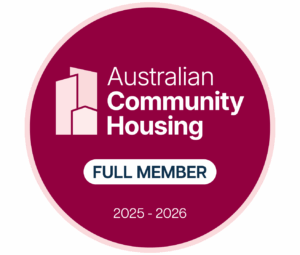A charity by definition is an organisation that exists to help others, raise funds, and collect goods for those in need. The irony here is that most charities depend on acts of charity themselves – help from others and funding – to be able to do their work. With the long-term sustenance of a charity so dependent on reliable income streams, as well as access to broader, potentially unreachable audiences, the support and engagement from suitably aligned corporate partners is crucial. Strong, rich, corporate partnerships can totally change the game for a charity – and don’t worry, there’s usually something in it for the company as well. In another age, companies sponsored charities because they needed to dump some profits and it made them look good. Now we are all better people, and corporate partnerships are stronger, deeper, and richer than ever before.
What is a corporate partnership?
According to the Australian Charities and Not-for-Profits Commission, a Corporate Partnership is “… where a charity forms a relationship with a business. It usually involves a charity receiving funds, goods, or services in exchange for something the corporate partner sees as beneficial.” The last part of that definition “… sees as beneficial”, has evolved considerably over the last decade or so. Where that idea was largely superficial in the past, organisations in many cases are now building their company’s values around the social and ethical goals they want to achieve through their relationships with different charities. This all comes under the umbrella of Corporate Social Responsibility (CSR) and the adoption of a CSR framework by many global corporations has transformed the way charitable corporate partnerships are formed, developed, and nurtured.
The structure and detail of a company’s CSR will influence the kind of charity they align with, and similarly, a charity may consider how aligned that CSR is with the charity’s values before agreeing to the partnership. Broadly speaking however, in most cases the partnership is grounded in a shared vision to contribute in somewhat selfless and philanthropic ways to the greater good. The execution of that vision can come from funding, or staff engagement (through volunteering, mentoring, or education) for example. But at its heart is a shared alignment with societal goals that will result in better and more ethical outcomes for everyone the charities’ work reaches, and ideally beyond.
How do these partnerships help charities?
Charities come in all shapes and sizes, not all of them well funded or staffed. Most of them exist because there’s an enormous amount of work in their space to be done, therefore there’s never enough time, money, or support and the phrase ‘our work is never done’ is commonly used. At its heart, corporate support helps charities to raise extra funds to enable the work of the charity to continue. Many companies will embed volunteerism into their CSR so engagement with a charity connects their staff with opportunities to get involved. This helps the charity by dramatically boosting its volunteer numbers and in some cases, with a standard of expertise and skills beyond what they could have dreamt of. In addition, alignment with a suitable company will allow the charity to amplify their message to audiences much greater than they may have reached alone. For many, the funding and support that comes with a corporate partnership is the key determinant for them being able to achieve their goals.
What kinds of partnership opportunities exist with VHA?
Veteran Housing Australia’s vision is to end Veteran homelessness in Australia and to empower Veterans to succeed. Many who have served our country with distinction find it difficult to adjust to civilian life without support from the government or other welfare agencies. This is particularly the case where housing is concerned, with Veterans dramatically overrepresented in the Australian homeless population. Our Mission at VHA is to assist Veterans and their families who are experiencing housing stress to access affordable housing. Our work promotes sustained employment, social inclusion, and improved physical and mental health outcomes. Housing is a basic need and by providing secure and safe housing Veterans and their families are given a stable base from which they can thrive.
To sustain and develop the work we do, we work closely with current partners including GHD and On Track Meals to support the veteran community. We actively seek further corporate partnerships in these areas and more. To talk to us about corporate partnerships please contact us at gm@veteranhousing.org.au.






